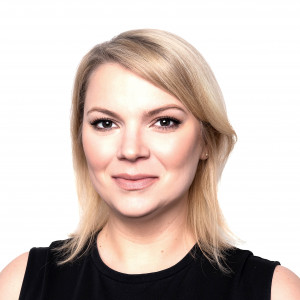
Magdalena Dziczek
Director of the Management Board Office, Member of the Management Board
EKO-PAK Packaging Industry Union of Employers
Magdalena Dziczek – graduated in Strategic Managment from Warsaw School of Economics and Scandinavian studies from SWPS University. PhD student at the Warsaw School of Economics. Since 2010 have been involved in waste management issues. She was representing National Chamber of Waste Management in Brussels and cooperated with Municipal Waste Europe. Thanks to this cooperation she was actively involved in establishing pronciples of Circular Economy Package. She used to represent MPO in Warsaw Ltd. On the position Chief Strategy Officer. Now she represents the EKO-PAK Packaging Industry Union of Employers as member of the board and secretary general. Involved in the work of EUROPEN, thanks to which she actively participates in the creation of EU waste and packaging regulations. Togehter with Nestle Polska and Pepsico Polska, she has been implementing the ReFlex project dedicated sorting and recycling of flexible plastic packaging waste. She created an application named Sorteusz. She focuses at her work and scientific research on improving waste management system in Poland, especially in the perspective of Circular Economy.
Participates in the sessions:
-
#green trends: Green food industry: from ESG, through circular economy and sustainable supply chains, to green energy
- EPR and the responsibility of producers for the life-cycle of their products. Consequences of the new
legislation. - The deposit return scheme in Poland – assumptions vs. reality. What is new for companies, trade and
the consumer? - Sustainable logistics, or measurable savings for companies
- Fair trade and sustainable farming, or a responsible choice of suppliers. Do Polish consumers even
care? - Greenwashing – how to avoid a “green” scandal? Greenwashing vs. legislation
- Implementation of regulations introduced by the SUP Directive. What it means in practice?
- EPR and the responsibility of producers for the life-cycle of their products. Consequences of the new

